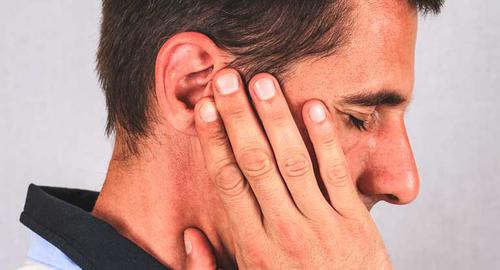What Causes Fluid Behind Your Ear and How to Treat It?
When you have constant pain in your ear, chances are that you have an ear infection. It's a serious issue needing to be looked into as soon as possible. Most of the time, the pain is accompanied by fluid behind ear accumulating in your middle ear just behind the eardrum.
This issue is not only confined to adults with children also presenting with the symptoms. Let's take a look at what causes the fluid behind your ear and how you can get rid of it.
What Are the Possible Causes of Fluid Behind Ear and Related Complications?
There are many possible reasons for you to have fluid behind your ear. It might be due to an infection or some other complications.
1. Ear infections
- Acute otitis media
This is an infection of the middle ear with a rapid onset. This infection is usually a result of bacteria or viruses taking root. For the latter, the viruses travel up from the respiratory tract if you have an illness affecting it.
This infection causes inflammation and the surrounding tissues leak fluid into the middle ear. It's accompanied by a headache, fever, and sometimes a loss of balance.
- Chronic suppurative otitis media
When the acute otitis media persists, especially in children, it can develop into chronic suppurative otitis media. In essence, this is persistent inflammation of the middle ear, often the result of a puncture to the eardrum.
2. Non-ear infections
- Otitis media with effusion
Otitis media with effusion occurs when the Eustachian tube gets blocked, preventing it from draining excess fluid from the middle ear. This inefficient drainage from the middle ear builds up a lot of fluid behind the eardrum.
Otitis media with effusion is not brought about by infection. Your ear feels full or blocked but there is hardly any pain.
However, the buildup of fluid can make the middle ear a perfect breeding ground for infectious bacteria and viruses.
- Chronic otitis media with effusion
This condition occurs when your middle ear tissues are effusing fluids for a period lasting more than 3 months. These fluids have a different character: thin and light (serious) or thick and heavy (mucus).
This condition differs from chronic suppurative otitis media in a way that it's not brought about by infection and the eardrum is still intact.

3. Complications
When fluid builds up behind your eardrums, you are bound to get a number of complications.
- Spread of infection
Microbes causing infections can spread from their initial colonized areas into the middle ear. This is more common when you have infections like colds, flu, or allergies.
The infection makes its way into the middle ear via Eustachian tube. It takes root and causes the tissues inside to effuse fluid as the body fights the infection.
This causes the tube to get blocked, leading the fluid behind ears to build up even more and fester problematically. This infection can even spread to the mastoid bone or even further up into the brain.
- Impaired hearing
The middle ear contains the ossicles, a trio of small bones that transmit sound waves from the eardrum to the inner ear.
When there's fluid in the middle ear, the ossicles do not conduct the acoustic vibrations as efficiently as they should. This makes the sounds you hear muddled.
- Speech or developmental delays
Infantile development is linked to what kids see, touch, and hear. If they can't hear properly, they aren't able to recreate the sounds. This inability inhibits their social growth.
What Can You Do About the Fluid Behind Your Ears?
When you feel that your ear is full of fluid, you can try out some home remedies. If these fail, you can consult a medical professional for help.
Home remedies
- A heated/cold compress
The temperature may ease your pain and discomfort. Soak a clean cloth in warm water, wring and gently press it against the side of the ear. This ought to give you some much-needed relief.
Alternatively, you can use a cold compress if the warmth makes it worse. Soak a cloth in cold water and apply it to your ear.
- Gargling with salt water
Mix salt to water and gargle it in your mouth for a few seconds and then spit it out. This mixture of salt and water has been known to reduce the number of mucous fluids in the respiratory tract and the middle ear.
- Refrain from smoking or polluted air
Smoke from cigarettes or polluted air contains irritants that affect the Eustachian tube. Since this tube is vital for the proper drainage, it makes sense to refrain from smoking so that your middle ear remains healthy and fluid-free.
Professional help
- Pain relief
Conditions that are the result of infection usually cause pain alongside the fluid behind the ear. You can relieve this by taking some painkillers like ibuprofen. This can make it hurt less while the body fights off the infection.
- Antibiotics
If the infection doesn't ebb on its own, take some antibiotic medication. This fights off the infection that's wreaking havoc in your middle ear.
- Drainage
If you feel that the aural fullness is too much for you, seek out an ENT specialist to drain your ear. They'll identify the cause and drain the fluid from your ear.
Takeaway Message
The fluid behind your ears might have numerous causes. Some of these are infections, whereas the others are non-infectious causes. All of them, however, bring about complications in both adults and children if not properly taken care of.
You can treat the condition by relying on a number of home remedies that provide relief. Alternatively, you can seek medical help from a professional.
